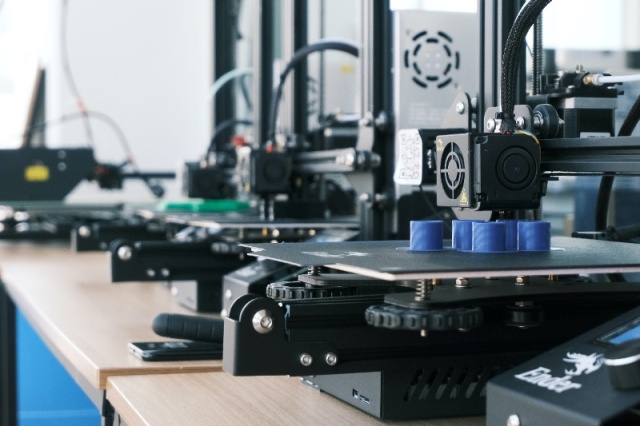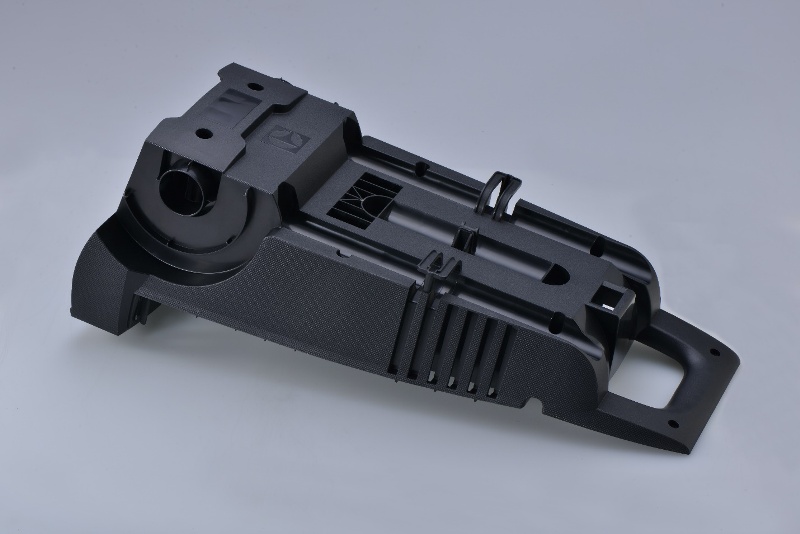3D printing and injection molding are robust manufacturing techniques, and several industries are using its multitude of applications. For example, automotive, healthcare, and manufacturing are top industries using these digital manufacturing methods.
With the growing advancement of Industry 4.0 applications, companies need more capable technologies and materials to fuel innovations. To continue the trend of bringing effective techniques, several companies now combine 3d printing with injection molding.
The most significant advantage of combining these two techniques is higher durability in soft materials. Materials like rubber, PLA, SLA and silicones are flexible, and to use in outdoor conditions, they need to hone additional characteristics to survive. The durability of injection molding and flexibility of 3d printing is unlocking several opportunities across multiple industries.
Let’s have a look at top-notch innovative applications that are simplifying several real-world complex challenges for companies.
Table of Contents
Corrosion Control in Oil Wells
An Australian company has invented a unique material called Synthetic Metal which can help in avoiding corrosion. The material offers electrolytic protection in the oil wells to keep the metal components safer and function for years. The traditional metal-made rod attracts corrosion quickly due to water and reactive chemicals like H2S & CO2.
To solve this problem, the company used both technologies to create a Cobalt Synthetic Metal. This metal avoids corrosion by controlling the anode part of the reaction. For making this unique metal, the engineers combined plastic molding with 3d printing of the anode matrix. As a result, the metal part has a hydrodynamic design controlling anode strength, thickness, and openness.
With injection molding, engineers ensure that the original efficient design remains intact and not compromised for this innovation. The widely available alternatives to combat corrosion in the oil wells are epoxy coating, thermal spray metal coating, and liquid corrosion inhibitor. However, all these methods are not efficient and require frequent maintenance and replacement. The Synthetic Metal anode is kept inside the injection-molded Arpmax polymer. It is to ensure the cathodic protection of the sucker rod and the metal sucker rod remains centralized.
High-Quality Rubber Production
Using the combination, the company focuses on producing custom rubber-based industrial accessories like gaskets and protective covers. The final product made through this offers higher accuracy and efficiency. These components are made to replace the short-run traditional parts that require frequent replacements and maintenance.
Earlier, manufacturers either used to hand-cast the rubber materials or needed to use expensive mass production tools. But, with the availability of 3d printing technology, companies can produce high-quality rubber parts with intricate details. This advancement will help various industries like aerospace, automotive, energy, and consumer products.
Now, product designers can use rapid prototyping with injection molding to quickly produce rubber parts that withstand harsh conditions. Now, engineers can choose from thousands of liquid rubber materials to prepare custom parts.
This innovation will meet all manufacturing goals of mass-production companies that seek more durability in their existing rubber products. When products are designed with an intricate-detailed mold using CAD software, the durability improves. In addition, once engineers calculate the injection volume and mixing ratio, they only need to feed the materials in the machine and produce flexible products.
Injection printing
Researchers at the University of Massachusetts have developed a new 3d printing technique that incorporates injection molding with 3DP. This advancement will help to boost 3d printing production rate and improve the overall strength and durability. As a result, companies can create durable prosthetics or more substantial aerospace parts.
With the combination, companies can produce parts that can retain strength and stay functional for a longer time. ‘Injection printing’ clubs material extrusion of the outer surfaces with injection molding of interior cavities at high flow rates. This new process uses the total meting capacity of the extrusion printers to overcome the challenge of the weak dimensionality of additive manufacturing.
In simple terms, the company is using the object’s interior as its cavity. The main focus here is to calculate the height and the shell wall spacing to get an accurate filling. This solution resolves the issue of excessive deflection and speeds up the process. However, as this new method is backwards compatible with current 3d printers, it requires new preprocessors.
The majority of the thermoplastics that are processed using FDM are compatible with injection printing. This new process exposes the object to more heat and improves strength and uniformity. To enhance the speed of injection printing, engineers only need to adjust the hot end. With this custom injection molding, companies can 3d print more durable spare parts for vehicles or stronger prosthetics.
The Future of This Innovation
This new combination is bridging the advantages of injection molding and 3d printing. With the ability to produce high-quality and custom design components, industries can accelerate their product manufacturing. We will experience the innovative application of metal injection molding and 3d printing in the upcoming time.
With the overgrowing demand for product customization across industries, this latest addition for creating durable products will act as a catalyst. Especially in the medical domain, doctors can produce custom prosthetics that are more comfortable and enduring. In future, this technology will become more accessible and affordable to cater to the manufacturing needs of multiple industries.




